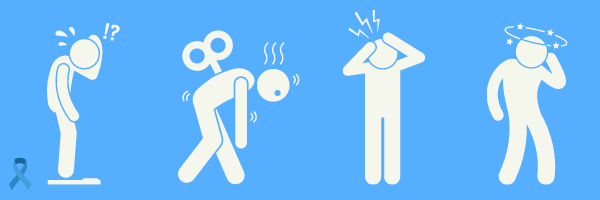
Chronic fatigue syndrome (CFS) or myalgic encephalomyelitis is a perplexing and complicated disorder effecting an estimated 836,000 to 2.5 million Americans. The cause is unknown but there are many theories that include viral infections, psychological stress, or a combination of factors. (1) (2) (3)
And there’s no single test that can confirm a clear diagnosis and symptoms can vary from person to person with severity fluctuations from day to day.
CFS is usually first characterized by:
- Extreme fatigue that lasts for at least six months
- Fatigue that can’t be fully explained by an underlying medical condition.
- Fatigue that worsens with physical or mental activity but doesn’t improve with rest.
Other symptoms may include:
- Problems with memory, focus and concentration.
- Sore throat
- Headaches
- Enlarged lymph nodes in neck or armpits.
- Unexplained muscle or joint pain
- Dizziness that worsens with moving from lying down or sitting to standing
Causes
Experts believe some people may be born with a predisposition for CFS, which is then triggered by a combination of factors which include:
- Viral infections like Epstein-Barr virus and human herpes virus 6.
- Immune system appears to be overall impaired in some way.
- Hormonal imbalances noted in blood levels of hormones produced in the hypothalamus, pituitary glands, or adrenal glands.
- Physical or emotional trauma experienced an injury, surgery, or significant emotional stress shortly before start of symptoms.
Risk factors
Chronic fatigue syndrome can occur at any age, but it most commonly affects young to middle-aged adults. And women are diagnosed with chronic fatigue syndrome more often than men.
Treating CFS Symptoms
Some problems associated with chronic fatigue syndrome can be improved with either prescription or over-the-counter medications and some natural supplements. (4) (5)
Depression. Low doses of some antidepressants may help not only depression but may also help improve sleep and relieve pain.
Pain. Over-the-counter medications such as ibuprofen and naproxen sodium may help, and prescription drugs sometimes used to treat fibromyalgia might be an option.
Counseling. Talking with a counselor can help build coping skills to deal with chronic illness, address limitations at work or school, and improve family dynamics. It can also be helpful for managing depression.
Addressing sleep problems. Sleep deprivation can make other symptoms worse so avoiding caffeine or changing bedtime routines may help.
Exercise. Aggressive exercise routines often lead to worsened symptoms but maintaining a low intensity plan which increases very gradually over time may be helpful in improving long-term function.
Diet. Eating a healthy diet rich in polyunsaturated and monounsaturated fats, avoiding saturated fats and refined carbohydrates may be helpful. Plus avoid – sugar, chemical sweeteners, alcohol, and caffeine.
Natural supplements. Researchers have evaluated a variety of natural products for effectiveness against chronic fatigue syndrome. Preliminary studies showed encouraging results for:
- Carnitine
- Coenzyme Q10
- Magnesium
- Melatonin
- Nicotinamide adenine dinucleotide (NADH)
- Ribose
- https://www.cdc.gov/me-cfs/about/index.html
- https://www.health.harvard.edu/a_to_z/chronic-fatigue-syndrome-a-to-z
- https://www.webmd.com/chronic-fatigue-syndrome/what-is-chronic-fatigue-syndrome#1
- https://www.aafp.org/afp/2002/0315/p1083.html
- https://naturalmedicines.therapeuticresearch.com/search.aspx?q=chronic+fatigue&go.x=0&go.y=0





